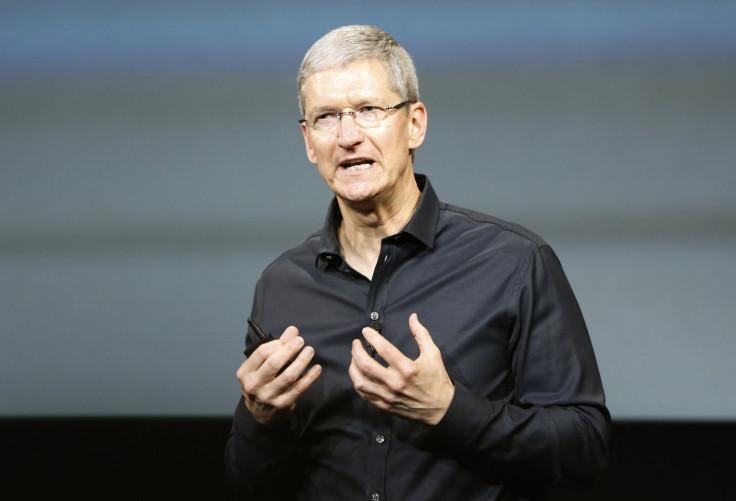Salary Shift For CEOs? How Tim Cook's Pay Cut Might Change The Future Of Silicon Valley Salaries

Apple CEO Tim Cook has been making headlines recently, but not for a new device or software. Instead Cook’s name has been showing up with a huge loss attached to it, a $4 million dollar loss of his own. Apple recently realigned their CEO salary strategy to better reflect how Apple’s stock is doing, which as one might assume is down. Therefore, Cook’s salary is down. The loss represents a 10 percent pay cut for the tech mogul.
Reed Hastings, Netflix’s CEO, is getting a 50 percent increase in his salary in 2014, it was recently reported. That raise is justified as Netflix was the S&P 500’s top performer last year. While the company isn’t the most profitable (they do turn a profit, just not to the tune that most Silicon Valley based companies see), its stock rose a resounding 296 percent in 2013. Coming off of wildly successful original content like Orange is the new Black and House of Cards, Netflix is on route to a huge year in 2014.
What do these two companies have in common? They are both paying their CEO’s based on how the company is performing, not unconditionally. Cook even pushed to make that happen despite it causing him a loss. On urging Apple to link his compensation to the company’s performance, Cook said the decision was on a “strong desire to set a leadership example in the area of CEO compensation and governance.”
While it may be an official strategy for Apple, Hastings’ salary rise is most likely purely coincidental. However, in the past Netflix has altered Hastings’ salary to reflect business performance. In 2012, Hastings’ salary dropped 43 percent because of a series of questionable decisions, including a price hike, sent the stock plummeting.
The model that Apple puts forth is a simple one to follow: if the company does well, you do well; if not, you don’t. And generally speaking, that is an unusual vision to come by in Silicon Valley. While it is true that some tech CEOs get paid the whopping sum of one-dollar salaries (Google’s Sergey Brin and Larry Page come to mind), most of those company heads get compensated with other forms of payment like stock grants. Heck, Meg Whitman, former republican candidate for governor and current CEO at Hewlett-Packard just had her notable single buck salary bumped to $1.5 million to be on a “competitive level” with her contemporaries.
Will Cook’s concept become a standard in the industry? Probably not. But it is important to see that his vision extends beyond the company line and into his own pocketbook.
© Copyright IBTimes 2025. All rights reserved.





















